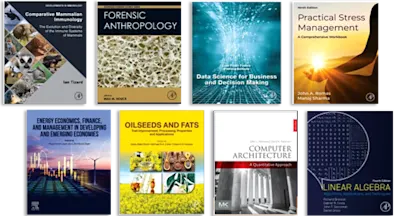
Municipal Solid Waste Energy Conversion in Developing Countries
Technologies, Best Practices, Challenges and Policy
- 1st Edition - October 15, 2019
- Imprint: Elsevier
- Editors: Suani Teixeira Coelho, Alessandro Sanches Pereira, Shyamala K. Mani, Daniel Hugo Bouille, William H.L. Stafford, Marina Yesica Recalde, Atilio Armando Savino
- Language: English
- Paperback ISBN:9 7 8 - 0 - 1 2 - 8 1 3 4 1 9 - 1
- eBook ISBN:9 7 8 - 0 - 1 2 - 8 1 3 4 2 0 - 7
Municipal Solid Waste Energy Conversion in Emerging Countries: Technologies, Best Practices, Challenges and Policy presents contributions from authors from India, Argentina… Read more
Purchase options

Municipal Solid Waste Energy Conversion in Emerging Countries: Technologies, Best Practices, Challenges and Policy presents contributions from authors from India, Argentina, Brazil, Colombia, Ecuador, Mexico, South Africa and China who come together to present the most reliable technologies for the energy conversion of municipal solid waste. The book addresses existing economic and policy scenarios and possible pathways to increase energy access and reduce the negative impacts of inadequate disposal. The book's authors discuss anaerobic digestion and other MSW conversion technologies, such as incineration and gasification. The environmental and social impacts of their introduction in small villages in emerging countries is also explored.
Due to its focus on local authors and its pragmatic approach, this book is indispensable for bioenergy researchers and practitioners in emerging economies, as well as researchers, graduate students and professionals interested in developing waste to energy technology that can be implemented in those regions. It is also particularly useful to professionals interested in energy policy and economics, due to its assessment of policy and recommendations.
- Explores the opportunities and challenges for municipal solid waste to energy technology implementation in emerging economies, such as Brazil, India, South Africa and China
- Presents a detailed and updated overview of the commercial technologies available in these countries and their economic, environmental and social aspects
- Includes case studies which highlight best practices and successful local experiences
- Examines current economics and policy barriers for these technologies
- Edition: 1
- Published: October 15, 2019
- Imprint: Elsevier
- Language: English
SC
Suani Teixeira Coelho
AP
Alessandro Sanches Pereira
SM
Shyamala K. Mani
DB
Daniel Hugo Bouille
WS
William H.L. Stafford
MR
Marina Yesica Recalde
AS